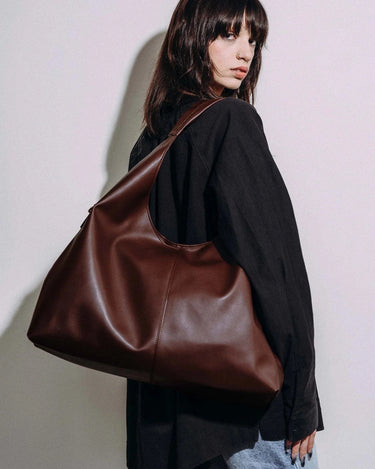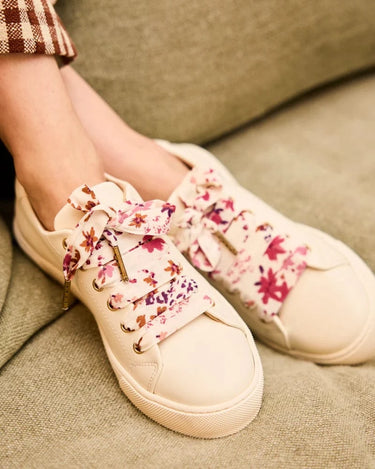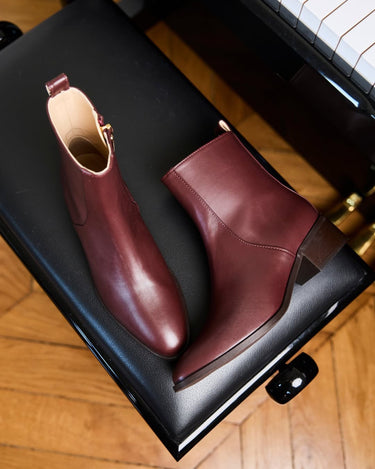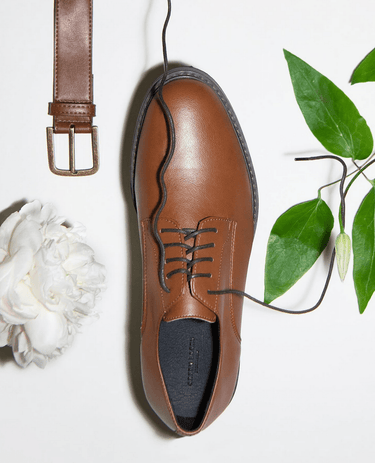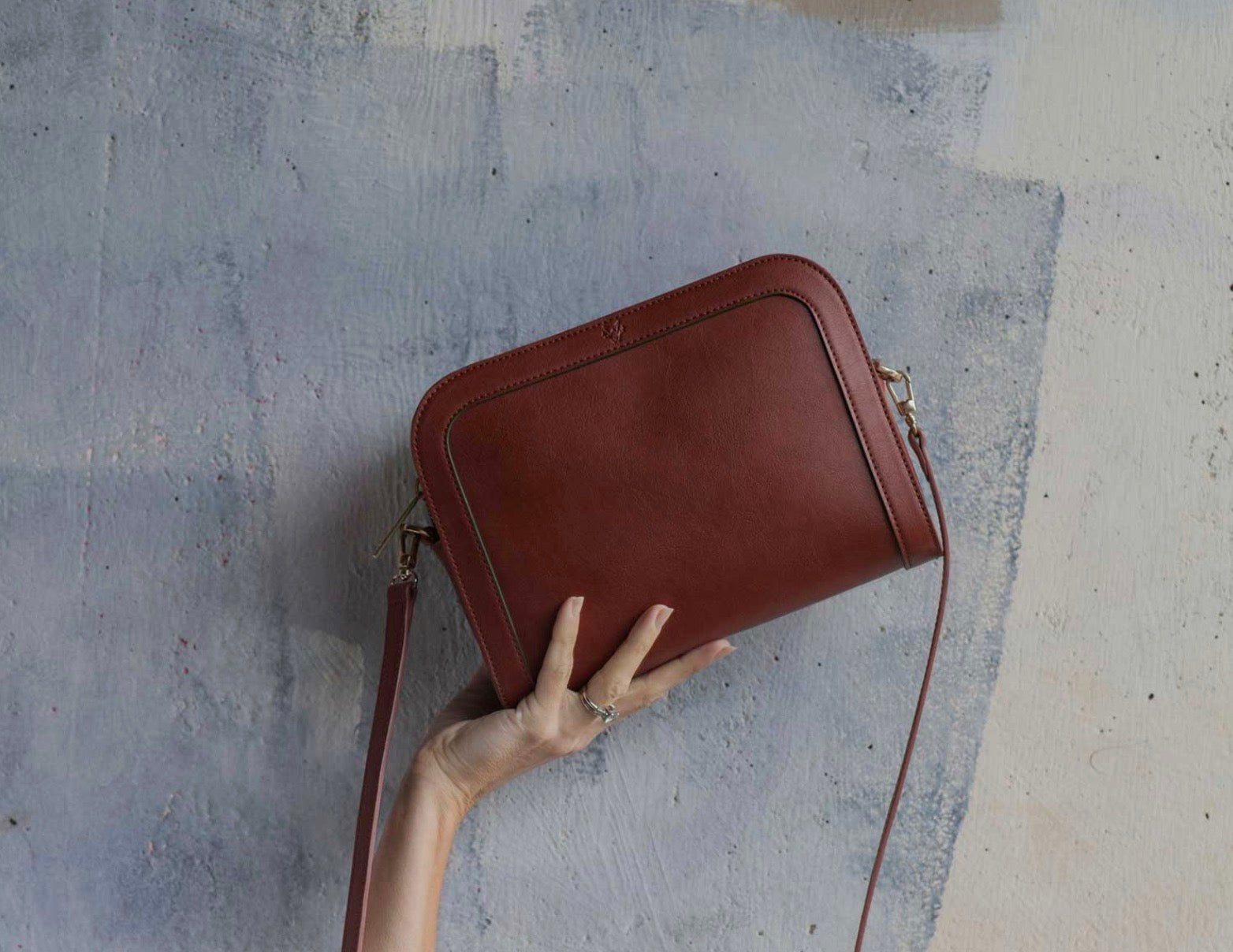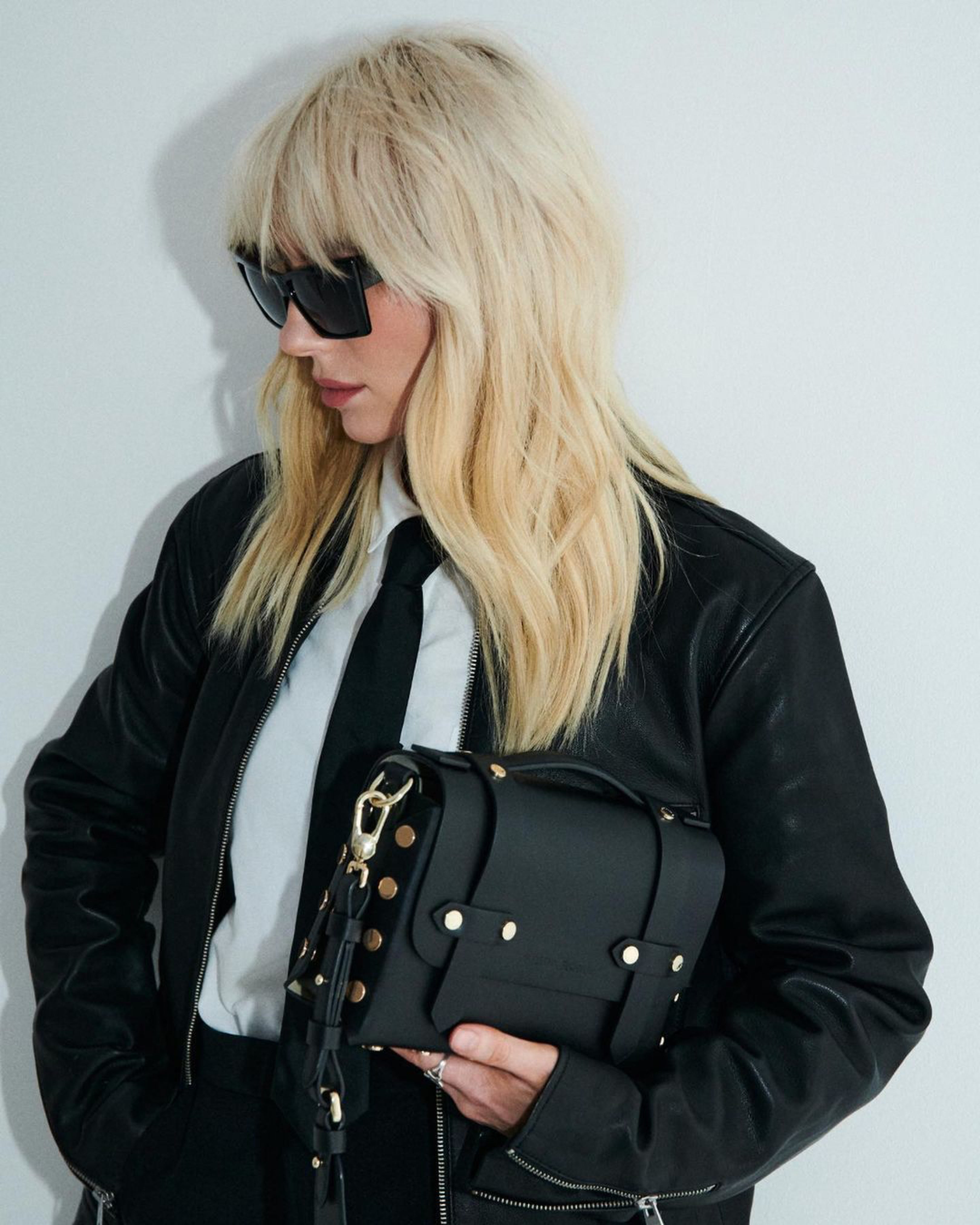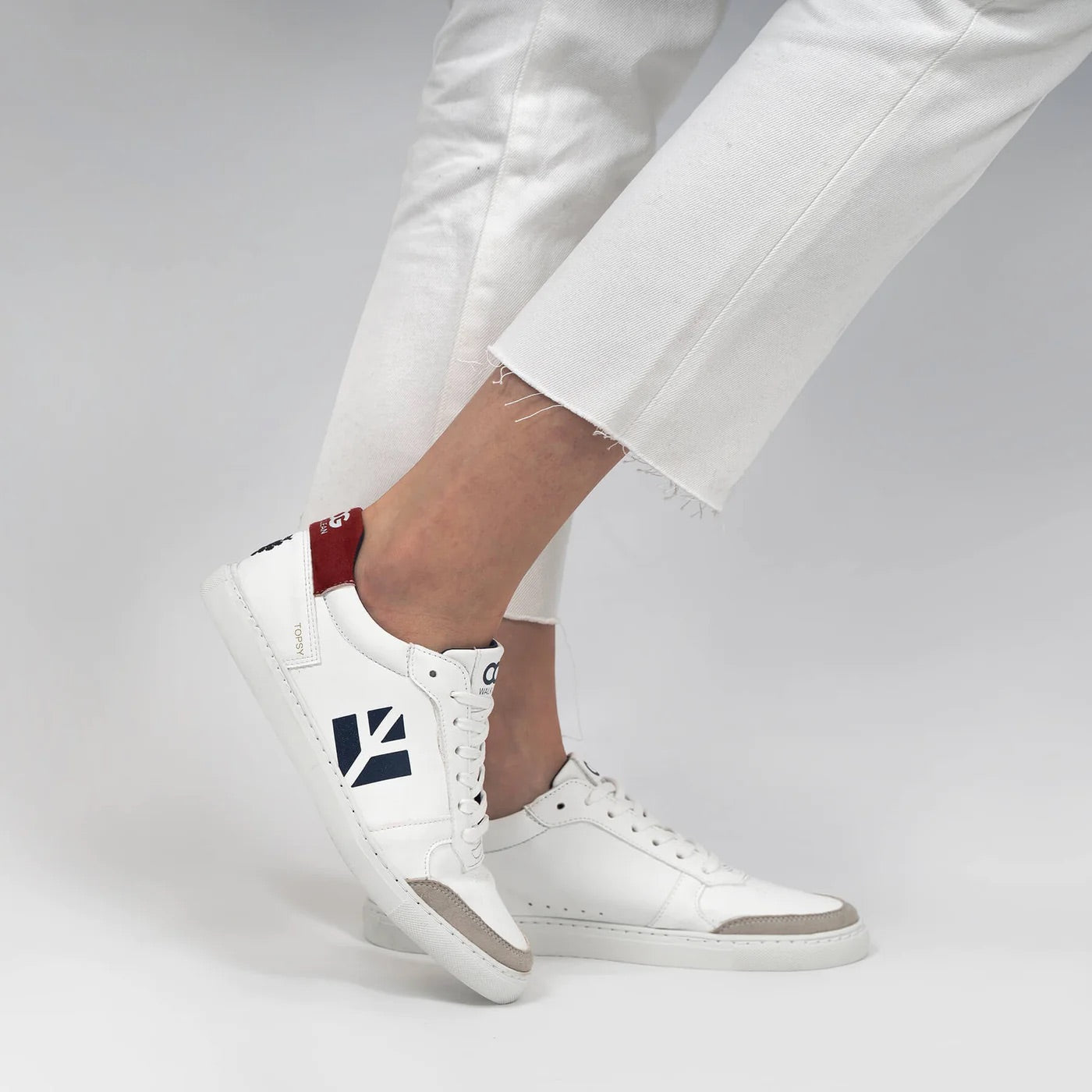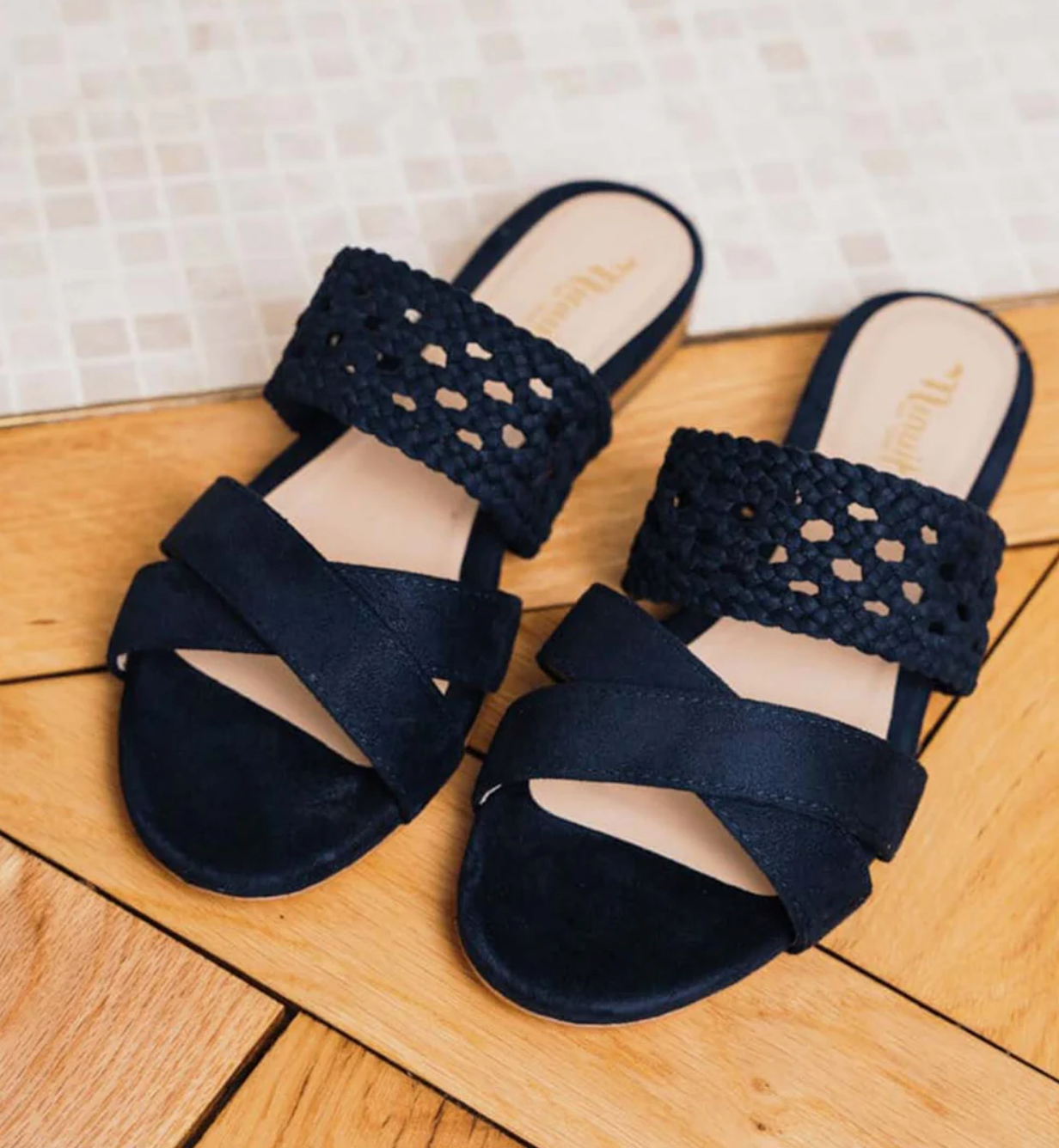What Is Vegan Leather Made Of – And Is It Sustainable?
"What is vegan leather made of?" is one of the questions we get asked the most at Immaculate Vegan. And in truth, the term 'vegan leather' encompasses a very wide range of materials, from toxic plastics such as PVC and less harmful but still not ideal textiles like PU to innovative and much more sustainable plant-based leathers.
A far cry from the “pleather” of the past, vegan leather can now be made from pineapples, mangos, apples, cactus and other natural sources. Some of the most prominent vegan leathers on the market today include Piñatex (which is made from pineapple leaf fibres), Vegea grape leather (made from leftover grapes from the wine industry), Desserto cactus leather, apple leather, and cork. Today, the world's first fully plastic-free vegan leather, MIRUM, is also available on the market.
By Annick Ireland, Co-Founder & CEO of Immaculate Vegan
In this article we will answer:
- What is vegan leather?
- Why is animal leather not sustainable?
- What is vegan leather made from? And is it all just plastic (spoiler alert – no!)
- Which brands use which vegan leathers?
What is vegan leather?
The term “vegan leather” is a catch-all term to signify any leather that does not come from an animal. Simply put, any leather that is not animal-based is vegan. Vegan leather is increasingly popular – the market is predicted to be worth $97 billion by 2027 – and there are a wide variety of vegan leathers on the market today, including:
- PVC
- Polyurethane (PU)
- Pineapple leather (Piñatex)
- Apple leather
- Cork leather
- Grape leather
- Cactus leather
- Corn leather
- MulbTex
- Micronappa / microsuede
- Recycled plastic
- MIRUM
Why is animal leather not sustainable?
Rearing animals for consumption is extremely resource-intensive and polluting. By now most of us are aware of the damage that animal agriculture does to the environment, but not many of us stop to remember that leather is part of animal agriculture. Leather kills around a billion animals every year, most of whom have lived miserable lives in the factory-farming system and died a horrifying death at the abattoir. A massive study called Pulse of the Fashion Industry (published by Global Fashion Agenda and The Boston Consulting Group) looked at the environmental damage caused by a large range of materials commonly used in fashion, from cradle to grave, and found cow leather to have the worst environmental impact, much higher than plastic materials such as acrylic and nylon.
Is vegan leather better for the environment?
This is a complicated question. Traditionally produced vegan leather, made from plastic polymers, are no friend to the environment as they don't biodegrade and also release microplastics into the waterways. But the good news is that today you no longer have to choose between plastic and cow skin: the new crop of plant leathers are much kinder to the planet than both their plastic-derived and animal-based counterparts. Many of these materials require many fewer chemicals than plastic or animal leathers, are less polluting of waterways and soil, and some are also biodegradable.
What is vegan leather made from?
What is vegan leather actually made from – is vegan leather plastic, and is it really a more sustainable option? The answer is that there are several options - many of them containing plastic in different forms. But remember that so does animal leather. Animal skins are often coated with plastic to keep it from biodegrading. Plus, plastic-free vegan leather does exist! Read on to find out more about different materials that vegan leather can be made from.
PVC
The one option to avoid is PVC (polyvinyl chloride, or vinyl) which tends to be used in many cheap vegan leather options found in fast fashion brands. What is it made of? The raw components are derived from salt and petroleum. Known as the 'poison plastic', according to Greenpeace it is 'the most environmentally damaging plastic. The PVC lifecycle – its production, use, and disposal – results in the release of toxic, chlorine-based chemicals. These toxins are building up in the water, air and food chain. The result: severe health problems, including cancer, immune system damage, and hormone disruption. No one can escape contamination: Everyone, everywhere has measurable levels of chlorinated toxins in their bodies.'
Is PVC leather vegan? Technically, yes – but as it's so toxic to the environment, the question is whether we should even consider it vegan.
Polyurethane (PU)
The most common material used in vegan leathers, polyurethane is a plastic polymer, derived from petroleum. It's often bonded with a fabric backing to make vegan leathers. It's much more breathable, flexible and lighter than the well-known PVC (vinyl) plastic, and – whilst PU production isn't entirely non-toxic – it is a much greener alternative. Whereas PVC produces harmful dioxins and uses highly toxic chlorine, PU doesn't need the same chemical plasticizers, and does degrade over time. It's a great alternative to animal leather as it looks and feels very similar. Is PU durable? The answer is definitely yes, when produced with quality and longevity in mind, PU leather can last a long time.
Vegetable-Based PU
Many brands are now experimenting with using vegetable-based PU, made from plant oils. This decreases many of the chemical hazards associated with making PU, and makes the PU more biodegradable. Watson & Wolfe use a PU vegan leather made from over 50% zero carbon plant oils.
Piñatex
Piñatex is an amazing vegan leather developed by Ananas Anam and made from pineapple leaf fibres, a waste product of the pineapple industry, and provides pineapple farmers with an additional source of income, as well as creating a super-sustainable new leather-like material. It isn't yet biodegradable, but the company is working on improvements to change that. Several of our brands are using Piñatex in their collections, including NAE and Bohema. Check out our Piñatex Edit for more Piñatex shoes, bags and accessories.
Apple Leather
Apple skin leather is another amazing vegan leather made from a waste product, this time from apples grown for the food industry, from the region of Bolzano in northern Italy (one of the world’s largest apple-producing regions). The recovered apple skin and core waste is dried and reduced to a powder, and sent to a factory in Florence, where it's coagulated with PU and coated onto a cotton and polyester base. The resulting ethical leather contains a minimum of 50% apple fibre, and looks and feels a lot like real leather. Apple leather can be very durable and last for many seasons in your wardrobe. Several of our brands have been real pioneers of apple skin leather products, including Agazi, Miomojo and Minuit Sur Terre. Check out our apple leather edit for more apple leather shoes, bags and accessories.
Cactus Leather
Cactus leather is a sustainable vegan leather made with leaves from the cactus plant. Created on an organic plantation in Mexico, the cacti are cultivated without the use of herbicides or pesticides. There is no irrigation system for these plants; they are instead grown using only rainwater and earth minerals rich in the region where the ranch is located. Any organic cactus material not used is exported and sold to the food industry.
On the plantation, an agriculture team cuts the mature cactus leaves of each harvest, once every 6-8 months. The leaves are then dried in the sun for three days, avoiding extra energy usage while still achieving the proper level of humidity. Then, the raw material is processed into a vegan leather that is partially biodegradable with up to a 50% organic composition.
The final textile is soft and flexible, yet durable, with a lifespan of up to 10 years. Cactus leather is much more sustainable than both animal-derived leather and traditionally made faux leathers, saving water and resources in its production. Like many other plant leathers, cactus leather isn't biodegradable yet, but let's keep in mind that many animal leather products aren't either.
Brands such as Thalie Paris, Kaila Katherine and FRIDA ROME all use cactus leather in their collections.
Cork Leather
Also known as cork skin, cork vegan leather is made from harvesting the bark of the cork oak tree, which can renew itself every nine years by growing back. Harvested raw cork barks are left to dry for about six months. They're then steamed and boiled to give flexibility, after which they're sliced and pressed into a natural leather. Cork leather is waterproof, stain resistant, easy to maintain and very light, so it's a great material for bags in particular. Svala use cork skin for several of their bags, whilst Murmali is a cork specialist, creating the most beautiful backpacks, clutches and crossbody bags from this material, which is one of the most sustainable plant leathers on the market.
Grape Leather
Grape leather by VEGEA (winner of a H&M Global Change Award) is a unique vegan leather made with grape skins left over from winemaking ( a waste product) added to plant oils and natural fibres from agriculture. These plant-based raw materials combine to form a bio-compound that is spread onto an organic cotton backing. No toxic solvents, heavy metals or dangerous substances are included in the process.
The composition of grape leather is 78% eco-composite and 22% water-based PU (polyurethane), making it one of the vegan leathers made from the highest amount of plant-based materials. Using renewable resources, as opposed to fossil fuels, results in one of the most eco-sustainable and ethical vegan leathers available.
Grape leather is versatile, printable, strong and easy to work with. The manufacturing and final product have a low environmental impact and high social responsibilty. With the goal of finding substitutes to oil-based and animal-derived materials, along with the collaboration of Italian wineries, wasted grape skin, stalks and seeds are earning a new value.
Some of our beautiful brands using Grape Leather include Bohema, COG and Zeta. Check out our grape leather edit for more Grape Leather shoes, bags and accessories.
MulbTex
MulbTex is an innovative ethical leather made from the paper pulp of mulberry tree leaves, which are the staple food of silk worms. MulbTex bypasses the cruelty of killing the worms, and instead extracts the silk protein directly from the leaves. The mulberry leaf pulp is used to coat cotton canvas, and then glazed with tree sap to make it water resistant and weather-proof. This vegan leather has its own silky shine, and is as strong as silk, making it a great alternative to both animal leather and plastic. Gunas New York are using MulbTex in several of their designs, and their Moby bag is the world's first plant-based men's bag made from MulbTex.
Micronappa and Microsuede
Both these ethical leathers are high quality micro-fibres made from ultra-fine polyester or nylon fibres. Micronappa is similar to nappa leather whilst Microsuede is similar to suede. Both fabrics are breathable, soft to touch, long-lasting, waterproof and easy to clean. Minuit Sur Terre makes great use of both fabrics in their collections. Microsuede is water-resistant but not entirey waterproof. How to clean microsuede? Spray with soapy water, then lightly dab (don't rub) to remove the stain.
Recycled Plastics
Turning plastic waste into new high-quality vegan materials is a growing trend, with several brands using recycled PU and other recycled plastics such as PET (made from plastic bottles) in place of virgin PU and polyester.
MIRUM
Plastic-free vegan leather now exists! Material innovation company Natural Fiber Welding have created a leather welded together from plant waxes and oils - all waste materials - completely free from any plastic or petroleum-based components. This material is durable and resistant, with a luxurious feel and finish. In certain conditions, it can be biodegradable - a great step forward for vegan leather, as this makes the material a true game-changer in terms of environmental impact. Brands such as Sentient, Svala, Melina Bucher and Modher use this miracle material.
Is vegan leather durable?
Vegan leather can indeed be durable. Material innovation has come a long way since the old days of faux leather that often got cracks and came apart after a brief period of use. Durability is among the factors that stands out about the new crop of resistant vegan leathers – as they are commonly created by companies whose main ethos is slow fashion, the idea is for them to be as long-lasting as possible. An example of this is pineapple leather Piñatex, which is known for its durability. Plus, let's bust a myth: animal leather breaks, too. Animal skin is not everlasting, and while some animal-based leather items can have a long life, others can end up with tears, holes and signs of wear.
Is vegan leather good quality?
The quality of vegan leather varies widely. From high-street low-cost brands that may focus on other factors over quality (and which have their own series of issues with regards to workers' rights and environmental sustainability) to designs such as the accessories in apple leather sold by brands like Minuit Sur Terre, which favour quality and durability, vegan leather exists across the fashion spectrum.
So if you want to be ahead of the fashion curve, and stand side by side with some of the most stylish and trend-setting people on the planet – ditch the animal leather and opt for the more progressive and sustainable vegan leathers that are out there. That's what being Immaculate is all about.
By Annick Ireland, Co-Founder & CEO of Immaculate Vegan
Cover image by Ration.L
If you love the idea of vegan leather, why not take a look at our vegan leather bags, vegan leather shoes, vegan leather boots, vegan leather trainers and vegan leather accessories.
Love sustainable vegan leathers? Take a look at our edits for Cactus Leather, Apple Leather, Grape Leather, Pinatex, MIRUM® and Cork Leather.
For more great content like this in your inbox, sign up to our newsletter, and save 10% off your next purchase, plus great savings throughout the year.
Related Articles

Why Veganuary Is Still Relevant

